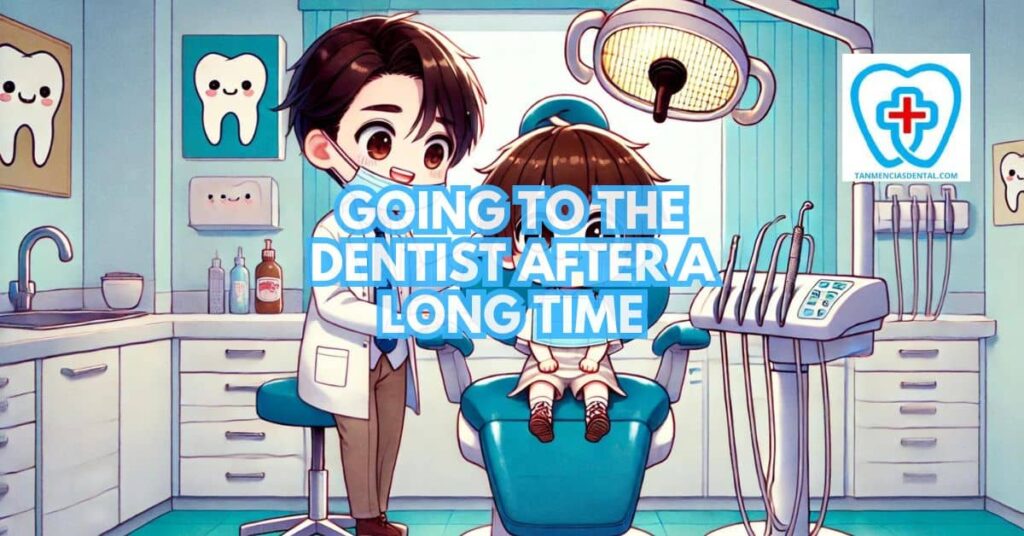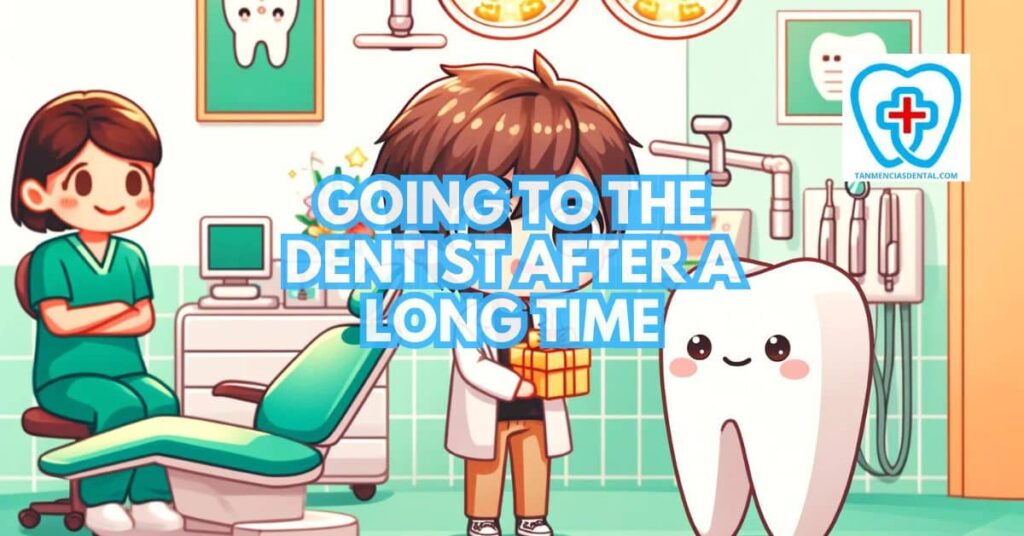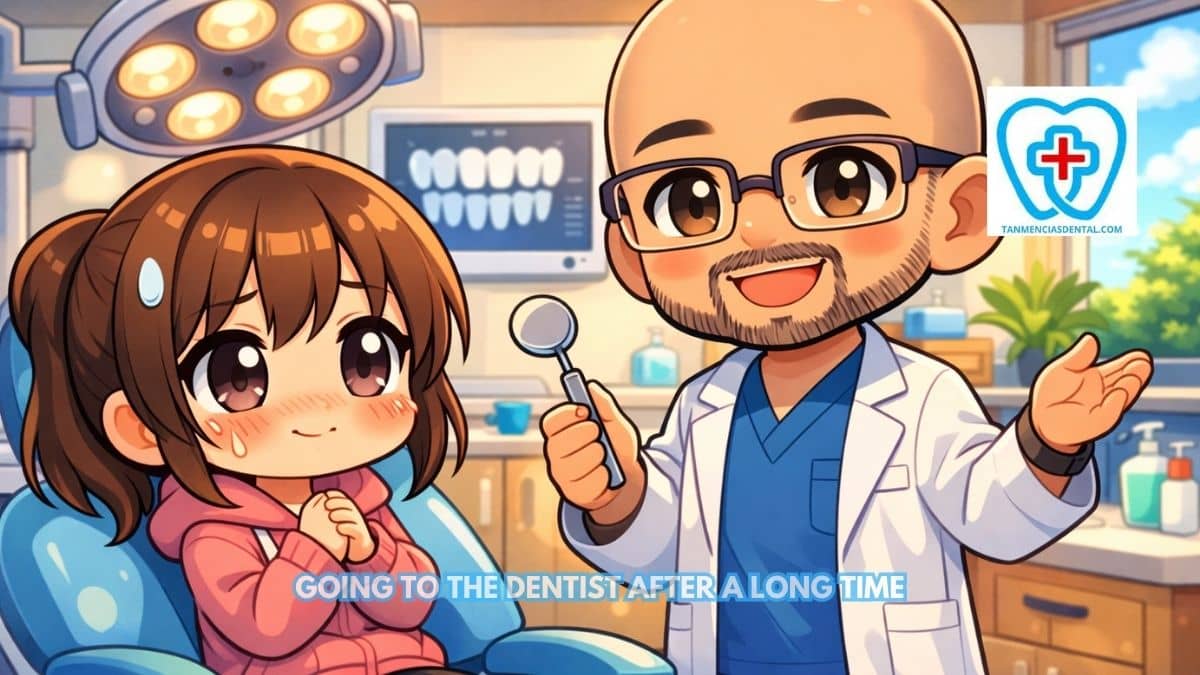Going to the dentist after a long time can feel stressful, but it plays a key role in protecting both oral and overall health.
When dental visits are delayed, small issues can quietly grow into problems that are harder to treat.
We’ll explain why regular checkups matter and how the mouth often shows early signs of wider health concerns.
Returning to dental care allows us to stop problems early instead of reacting to pain or damage later.
We’ll also cover what to expect when restarting care so the process feels clearer and more manageable.
With the right support and information, getting back on track with dental health becomes a positive and realistic step forward.
1. The Link Between Oral Health and Overall Well-Being
The link between dental health and overall well-being is stronger than many realize.
Poor dental hygiene doesn’t just affect your teeth and gums but can lead to serious health problems like heart disease, diabetes, and respiratory infections.
Inflammation and harmful bacteria from the mouth can enter the bloodstream, spreading to other parts of the body and causing more significant health issues.
For individuals with diabetes, maintaining good oral health is particularly important, as they are more prone to gum disease, which can make blood sugar control more difficult.
Knowing what to expect during dental checkups can ease any concerns, but if it’s been a while since your last visit, the appointment might take longer to address any buildup of plaque or undetected problems.
Regular dental visits play a key role in preventing these risks and promoting overall health.
By prioritizing your dental health, you help safeguard your body against a range of potential complications.
🦷 When Does A Dentist Recommend A Deep Cleaning Over A Standard Checkup?
2. Recognizing the Need for Regular Dental Checkups
Regular dental checkups are vital for early detection and prevention of oral health conditions that can affect your overall health.
These appointments allow dental professionals to monitor your oral health, ensuring that any emerging issues are identified and treated promptly.
By avoiding regular checkups, you risk allowing treatable conditions to develop into more serious problems that can be costly and complex to resolve.
Regular checkups also provide an opportunity to receive professional dental cleaning, which removes plaque and tartar buildup that regular brushing and flossing at home cannot.
Establishing a routine of regular dental visits is a proactive step towards maintaining a healthy smile and preventing dental diseases.
🦷 Can Dentists Do Root Canals? A Comprehensive Guide to Finding the Right Professional
3. Overcoming Dental Anxiety: It’s Time to Visit
Dental anxiety is a common reason many people delay care, especially if they haven’t been to the dentist in a long time.
Fear can grow when past experiences were uncomfortable or when worries build up over possible problems.
Modern dental offices focus on comfort and clear communication to help ease these concerns.
Telling the dental team about your fears allows them to explain each step and move at a pace that feels manageable.
Many dentists offer options to help you relax during the visit, depending on your needs.
Understanding that anxiety is normal helps remove shame and builds confidence.
Taking the step to schedule a visit, even with fear present, supports better oral health and long-term well-being.
🦷 Is Oral Prophylaxis Different From A Regular Dental Cleaning?
4. The First Steps in Scheduling After Delayed Dental Care
Delaying dental care is something many people experience, but the first step to resuming care is to contact a dental office and schedule your appointment.
A gap in dental care does not mean you have failed, and dental teams are used to helping patients return after time away.
When speaking with the office, be honest about how long it has been since your last visit so they can plan the right type of exam and cleaning.
This information helps them understand your needs before you arrive, when you’re visiting the dentist after a long break.
The staff can also explain what the first visit may include and how much time to expect.
This call is a good time to share any fears, pain, or concerns that may affect your comfort.
Many offices can offer reassurance, extra time, or comfort options when needed.
Before the visit, gather past dental records if you have them and write down any questions you want to ask.
Taking these steps helps make the appointment smoother and more productive.
🦷 Can Electric Toothbrushes Damage Enamel?

5. What to Expect During Your Dental Examination
During your dental exam, the dentist and dental hygienist will carefully check your teeth, gums, and mouth to understand your overall oral health.
They use small tools like mirrors and probes to look at each tooth and to check for swelling, bleeding, or signs of gum disease.
The dental exam may also include digital X-rays to show areas under the gums and between teeth that cannot be seen by eye.
These images help the dentist find hidden problems such as decay, bone loss, or infections.
The dentist will also look for changes in the soft tissues of your mouth that could signal oral health concerns.
As the exam continues, the dental team notes any issues and explains what they find in clear terms.
This careful process helps guide the next steps in care and supports long-term dental health.
🦷 Can a Tooth Infection Kill You? Understanding the Serious Risks
6. The Role of Dental Cleaning in Your Visit
A professional dental cleaning is an important part of modern dentistry, especially when it has been a long time since your last visit.
During the cleaning, dental professionals use special tools to remove plaque and tartar from your teeth and from below the gumline.
These areas are hard to clean with brushing and flossing alone.
Removing this buildup helps lower the risk of gum disease and tooth decay.
The cleaning can also lift surface stains, which often makes teeth look cleaner and feel smoother.
As part of care in dentistry, the dental hygienist explains what they see and shares tips to improve brushing and flossing at home.
These steps help support healthier habits and protect your teeth between visits.
🦷 What Is the Best Way to Brush Your Teeth?
7. Why Your First Dental Cleaning May Be Different
If it has been a long time since your last dental visit, your first cleaning may not be a regular one.
In some cases, the dentist may recommend a deep cleaning instead of a standard cleaning.
This type of cleaning focuses on removing hardened plaque and bacteria from below the gumline, where regular brushing cannot reach.
Because of this, the appointment may take longer than expected and may require numbing to keep you comfortable.
Your gums might feel sore or sensitive for a short time after the visit as they begin to heal.
A deep cleaning can also affect the total cost of your visit and how your insurance covers the treatment.
Knowing this ahead of time helps reduce worry and allows you to feel more prepared for the process.
🦷 Can Dentists Prescribe Medication? Exploring the Limits of Dental Prescriptions
8. Discussing Your Dental Care Routine with Your Dentist
After your examination and cleaning, your dentist or dental hygienist will discuss your current home oral care routine with you.
This conversation is a chance to share your daily practices and receive personalized advice on how to improve them, whether it’s through better brushing techniques, the use of specific dental products, or incorporating flossing into your routine.
Understanding the role of a well-rounded dental care routine is crucial in preventing dental issues between visits.
If you have dental insurance, this is also a good time to ask about covered preventative care products or services.
This dialogue ensures that you leave the office not only with a cleaner mouth but also with the knowledge to maintain it.
🦷 How Can I Prevent Tooth Sensitivity When Eating Hot or Cold Foods?
9. Addressing Immediate Concerns and Treatment Plans
If your examination reveals any immediate dental concerns, such as cavities, gum disease, or other issues, your dentist will discuss a treatment plan with you.
This plan may include interventions like fillings, deep cleanings, or more specialized treatments tailored to address your specific needs.
Your dentist will explain the procedures, expected outcomes, and any necessary follow-up care, ensuring you are fully informed and comfortable with the proposed plan.
Understanding the importance of addressing these issues promptly can prevent them from escalating into more serious conditions.
If you have dental insurance, inquire about coverage for these treatments to understand any potential out-of-pocket costs.
🦷 Discover the Benefits of Electric Toothbrushes

10. Understanding the Financial Aspect of Dental Care
The cost of dental care, particularly if you’ve postponed visits for a while, can be a concern for many.
It’s important to have an open discussion with your dental office about the cost of treatments, payment options, and how dental insurance may offset some expenses.
Many dental offices offer payment plans or work with third-party financing companies to make dental care more accessible.
If you have dental insurance, understanding what is covered, including preventative care, can significantly reduce out-of-pocket expenses.
Being proactive about financial planning for dental care can alleviate stress and ensure you receive the necessary treatments without delay.
🦷 Can Dentists Prescribe Antibiotics? Understanding the Scope of Dental Prescriptions
11. Follow-Up Care and Setting Future Appointments
Before you leave the dental office, it is important to talk about any follow-up care and set future appointments.
Your dentist may suggest a return visit for treatment, healing checks, or routine cleanings.
Scheduling these visits right away helps keep your care on track and avoids long gaps between visits.
When you visit the dentist on a regular schedule, the dental team can watch for small changes and address them early.
These visits also allow your dentist to adjust your care plan based on how your mouth responds to treatment.
Setting future appointments supports healthy habits and makes dental care easier to manage.
Staying committed to when you need to visit the dentist helps protect your oral health over time.
🦷 Dental Diagnostics In Marikina
12. Establishing a New Dental Care Routine at Home
After your visit, it’s essential to take the advice from your dental professional and apply it to your daily home oral care routine.
Incorporating recommended practices, such as using fluoride toothpaste, flossing regularly, and possibly using an antimicrobial mouthwash, can significantly improve your oral health.
Remember, the goal of home care is to maintain the cleanliness achieved in the dental office and to prevent new issues from arising.
Regularly changing your toothbrush or the head on your electric toothbrush, along with avoiding sugary snacks and acidic drinks, can also make a big difference.
Establishing these habits not only supports the health of your mouth but also sets a positive example for those around you.
🦷 All-Inclusive Dental Services in Marikina
👨⚕️ Conclusion
Going to the dentist after a long time is a commendable step towards regaining control of your oral health.
This journey involves understanding the financial aspects of dental care, establishing a regimen for follow-up appointments, and adopting a thorough dental care routine at home.
Each visit to the dental office builds on the last, gradually improving your oral health and preventing future issues.
Embracing these practices shows a commitment not just to your oral health but to your overall well-being.
Remember, it’s never too late to take steps towards healthier teeth and gums, and the path to oral health offers rewards with every step you take.
❔ FAQs
1. Is it normal to feel nervous when returning to the dentist after a long time?
Yes, feeling nervous is very common when returning to the dentist after a long gap.
Many people worry about pain, judgment, or unexpected problems.
Dentists understand these concerns and are trained to help patients feel more comfortable.
Sharing your fears with the dental team can make the visit much easier.
2. What should I tell the dentist if it’s been years since my last visit?
It is important to tell the dentist how long it has been since your last appointment.
You should also mention any pain, bleeding gums, or sensitivity you notice.
Sharing your medical history and current medications helps the dentist provide safe care.
Honest communication allows the dental team to plan the visit properly.
3. Will my first dental visit take longer than usual?
Yes, the first visit after a long break may take more time than a regular checkup.
The dentist may need to perform a full exam, take X-rays, and complete a detailed cleaning.
This helps identify any hidden problems and build a clear treatment plan.
Longer visits are common and help prevent future issues.
4. Does a deep cleaning mean something is seriously wrong?
A deep cleaning does not always mean there is a serious problem.
It is often needed when plaque and tartar build up below the gumline over time.
This treatment helps control gum disease and protect your teeth.
Many people need it after delaying dental care.
5. How soon should I schedule my next dental visit after returning?
Your dentist will suggest when to return based on your oral health needs.
Some people may need a follow-up visit soon for treatment or monitoring.
Others may be advised to return in six months for a routine checkup.
Following this schedule helps maintain progress and prevent setbacks.
6. What can I do at home to support my dental health after the visit?
Brushing twice a day with fluoride toothpaste and flossing daily are key steps.
Using the tools and techniques recommended by your dentist can improve results.
Limiting sugary foods and drinks also helps protect your teeth.
Consistent home care keeps your mouth healthy between visits.
😁 Self-Promotion
Discover the pathway to a brighter smile at Tan-Mencias Dental Clinic, nestled in the heart of Parang, Marikina City, where your oral health is our top priority.
With a welcoming environment and a dedicated team, we’re here to offer comprehensive dental care tailored just for you.
For convenience and ease, feel free to reach out with any questions or to schedule your next visit via phone at 0917-145-1074, message us on our Facebook page, or via our website’s contact page.
We’re committed to making your dental experience as comfortable and positive as possible.
Let us be a part of your journey to a healthier, more radiant smile.
Contact us today!

